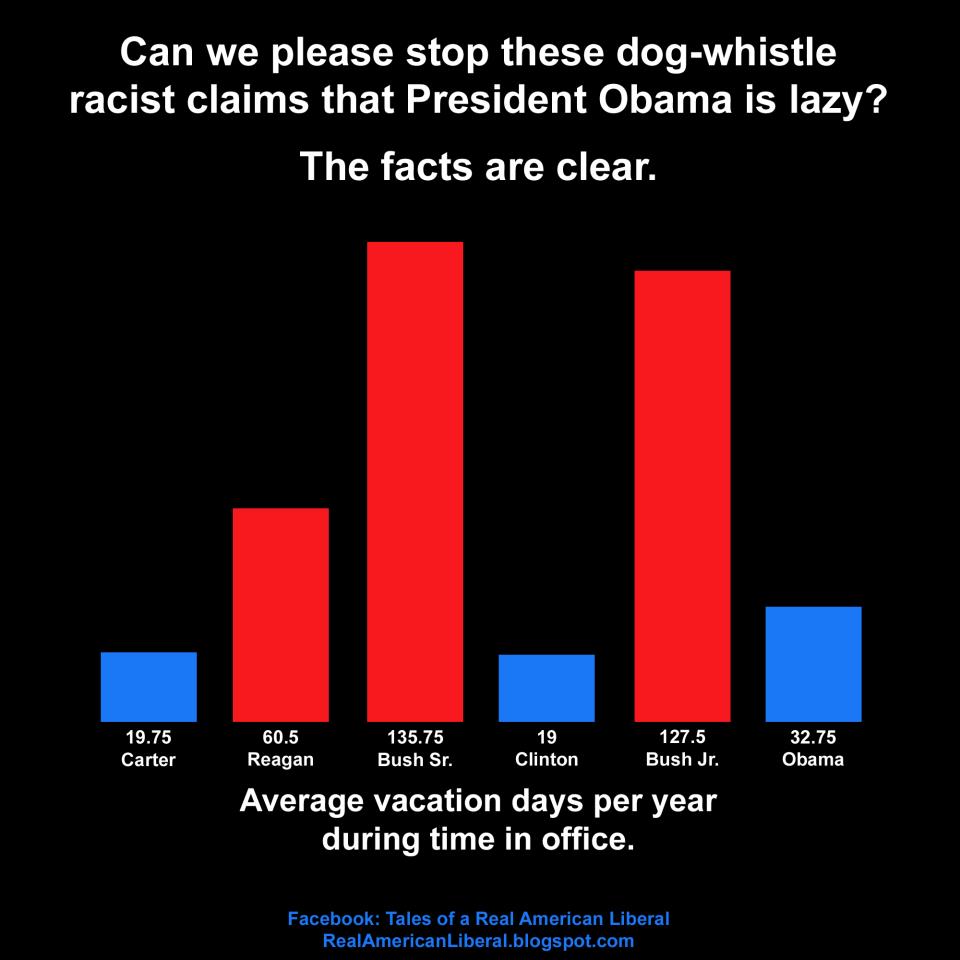Unfortunately, Republicans are being…well, the usual (for them, that is): rigidly (anti-tax, anti-government) ideological, refusing to raise revenues one dime, no real plan of their own to rein in entitlement spending (unless you count Paul Ryan’s plan to gut/privatize Medicare a “plan”). ‘
Anyway, I’m happy to see President Obama dispensing with the false equivalence and “both sides” nonsense, and instead calling out Republicans for their wildly irresponsible, reckless, harmful behavior. Now, if only the Bob McDonnells of the world would do the same, and stop pretending that this problem isn’t overwhelmingly the fault of his own party, beholden as it is (and as HE is!) to Grover Norquist, the Koch brothers, etc.
REMARKS BY THE PRESIDENT
ON THE SEQUESTER
South Court Auditorium
10:50 A.M. EST
THE PRESIDENT: Good morning, everybody. (Applause.) Please have a seat. Well, welcome to the White House.
As I said in my State of the Union address last week, our top priority must be to do everything we can to grow the economy and create good, middle-class jobs. That’s our top priority. That’s our North Star. That drives every decision we make. And it has to drive every decision that Congress and everybody in Washington makes over the next several years.
And that’s why it’s so troubling that just 10 days from now, Congress might allow a series of automatic, severe budget cuts to take place that will do the exact opposite. It won’t help the economy, won’t create jobs, will visit hardship on a whole lot of people.
Here’s what’s at stake. Over the last few years, both parties have worked together to reduce our deficits by more than $2.5 trillion. More than two-thirds of that was through some pretty tough spending cuts. The rest of it was through raising taxes — tax rates on the wealthiest 1 percent of Americans. And together, when you take the spending cuts and the increased tax rates on the top 1 percent, it puts us more than halfway towards the goal of $4 trillion in deficit reduction that economists say we need to stabilize our finances.
Now, Congress, back in 2011, also passed a law saying that if both parties couldn’t agree on a plan to reach that $4 trillion goal, about a trillion dollars of additional, arbitrary budget cuts would start to take effect this year. And by the way, the whole design of these arbitrary cuts was to make them so unattractive and unappealing that Democrats and Republicans would actually get together and find a good compromise of sensible cuts as well as closing tax loopholes and so forth. And so this was all designed to say we can’t do these bad cuts; let’s do something smarter. That was the whole point of this so-called sequestration.
Unfortunately, Congress didn’t compromise. They haven’t come together and done their jobs, and so as a consequence, we’ve got these automatic, brutal spending cuts that are poised to happen next Friday.
Now, if Congress allows this meat-cleaver approach to take place, it will jeopardize our military readiness; it will eviscerate job-creating investments in education and energy and medical research. It won’t consider whether we’re cutting some bloated program that has outlived its usefulness, or a vital service that Americans depend on every single day. It doesn’t make those distinctions.
Emergency responders like the ones who are here today — their ability to help communities respond to and recover from disasters will be degraded. Border Patrol agents will see their hours reduced. FBI agents will be furloughed. Federal prosecutors will have to close cases and let criminals go. Air traffic controllers and airport security will see cutbacks, which means more delays at airports across the country. Thousands of teachers and educators will be laid off. Tens of thousands of parents will have to scramble to find childcare for their kids. Hundreds of thousands of Americans will lose access to primary care and preventive care like flu vaccinations and cancer screenings.
And already, the threat of these cuts has forced the Navy to delay an aircraft carrier that was supposed to deploy to the Persian Gulf. And as our military leaders have made clear, changes like this — not well thought through, not phased in properly — changes like this affect our ability to respond to threats in unstable parts of the world.
So these cuts are not smart. They are not fair. They will hurt our economy. They will add hundreds of thousands of Americans to the unemployment rolls. This is not an abstraction — people will lose their jobs. The unemployment rate might tick up again.
And that’s why Democrats, Republicans, business leaders, and economists, they’ve already said that these cuts, known here in Washington as sequestration, are a bad idea. They’re not good for our economy. They’re not how we should run our government.
And here’s the thing: They don’t have to happen. There is a smarter way to do this — to reduce our deficits without harming our economy. But Congress has to act in order for that to happen.
Now, for two years, I’ve offered a balanced approach to deficit reduction that would prevent these harmful cuts. I outlined it again last week at the State of the Union. I am willing to cut more spending that we don’t need, get rid of programs that aren’t working. I’ve laid out specific reforms to our entitlement programs that can achieve the same amount of health care savings by the beginning of the next decade as the reforms that were proposed by the bipartisan Simpson-Bowles commission. I’m willing to save hundreds of billions of dollars by enacting comprehensive tax reform that gets rid of tax loopholes and deductions for the well off and well connected, without raising tax rates.
I believe such a balanced approach that combines tax reform with some additional spending reforms, done in a smart, thoughtful way is the best way to finish the job of deficit reduction and avoid these cuts once and for all that could hurt our economy, slow our recovery, put people out of work. And most Americans agree with me.
The House and the Senate are working on budgets that I hope reflect this approach. But if they can’t get such a budget agreement done by next Friday — the day these harmful cuts begin to take effect — then at minimum, Congress should pass a smaller package of spending cuts and tax reforms that would prevent these harmful cuts — not to kick the can down the road, but to give them time to work together on a plan that finishes the job of deficit reduction in a sensible way.
I know Democrats in the House and in the Senate have proposed such a plan — a balanced plan, one that pairs more spending cuts with tax reform that closes special interest loopholes and makes sure that billionaires can’t pay a lower tax rate than their salary — their secretaries.
And I know that Republicans have proposed some ideas, too. I have to say, though, that so far at least the ideas that the Republicans have proposed ask nothing of the wealthiest Americans or biggest corporations, so the burden is all on first responders or seniors or middle-class families. They double down, in fact, on the harsh, harmful cuts that I’ve outlined. They slash Medicare and investments that create good, middle-class jobs. And so far at least what they’ve expressed is a preference where they’d rather have these cuts go into effect than close a single tax loophole for the wealthiest Americans. Not one.
Well, that’s not balanced. That would be like Democrats saying we have to close our deficits without any spending cuts whatsoever. It’s all taxes. That’s not the position Democrats have taken. That’s certainly not the position I’ve taken. It’s wrong to ask the middle class to bear the full burden of deficit reduction. And that’s why I will not sign a plan that harms the middle class.
So now Republicans in Congress face a simple choice: Are they willing to compromise to protect vital investments in education and health care and national security and all the jobs that depend on them? Or would they rather put hundreds of thousands of jobs and our entire economy at risk just to protect a few special interest tax loopholes that benefit only the wealthiest Americans and biggest corporations? That’s the choice.
Are you willing to see a bunch of first responders lose their job because you want to protect some special interest tax loophole? Are you willing to have teachers laid off, or kids not have access to Head Start, or deeper cuts in student loan programs just because you want to protect a special tax interest loophole that the vast majority of Americans don’t benefit from? That’s the choice. That’s the question.
And this is not an abstraction. There are people whose livelihoods are at stake. There are communities that are going to be impacted in a negative way. And I know that sometimes all this squabbling in Washington seems very abstract, and in the abstract, people like the idea, there must be some spending we can cut, there must be some waste out there. There absolutely is. But this isn’t the right way to do it.
So my door is open. I’ve put tough cuts and reforms on the table. I am willing to work with anybody to get this job done. None of us will get 100 percent of what we want. But nobody should want these cuts to go through, because the last thing our families can afford right now is pain imposed unnecessarily by partisan recklessness and ideological rigidity here in Washington.
As I said at the State of the Union, the American people have worked too hard, too long, rebuilding from one crisis to see their elected officials cause yet another one. And it seems like every three months around here there’s some manufactured crisis. We’ve got more work to do than to just try to dig ourselves out of these self-inflicted wounds.
And while a plan to reduce our deficit has to be part of our agenda, we also have to remember deficit reduction alone is not an economic plan. We learned in the 1990s, when Bill Clinton was President, nothing shrinks the deficit faster than a growing economy that creates good, middle-class jobs. That should be our driving focus — making America a magnet for good jobs. Equipping our people with the skills required to fill those jobs. Making sure their hard work leads to a decent living. Those are the things we should be pushing ourselves to think about and work on every single day. That’s what the American people expect. That’s what I’m going to work on every single day to help deliver.
So I need everybody who’s watching today to understand we’ve got a few days. Congress can do the right thing. We can avert just one more Washington-manufactured problem that slows our recovery, and bring down our deficits in a balanced, responsible way. That’s my goal. That’s what would do right by these first responders. That’s what would do right by America’s middle class. That’s what I’m going to be working on and fighting for not just over the next few weeks, but over the next few years.
Thanks very much, everybody. Thank you, guys, for your service. (Applause.)
END 11:05 A.M. EST

 The Virginia General Assembly will soon wrap up its work on the 2013 legislative session. Renewable energy advocates began the session with high hopes for a series of bills that promised to reform our renewable energy law, expand net-metering, and open up new opportunities for financing solar systems and small wind turbines.
The Virginia General Assembly will soon wrap up its work on the 2013 legislative session. Renewable energy advocates began the session with high hopes for a series of bills that promised to reform our renewable energy law, expand net-metering, and open up new opportunities for financing solar systems and small wind turbines.  Aneesh Chopra, Democratic candidate for Virginia Lt. Governor is proud to announce that he has received the endorsement of former Rep. Tom Perriello.
Aneesh Chopra, Democratic candidate for Virginia Lt. Governor is proud to announce that he has received the endorsement of former Rep. Tom Perriello.
 Here are a few Virginia (and national) news headlines, political and otherwise, for Tuesday, February 19.
Here are a few Virginia (and national) news headlines, political and otherwise, for Tuesday, February 19.






